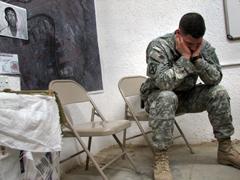Twenty years ago, the prime minister of Israel was assassinated. The killer was a lone gunman, Israeli and Jewish, just like the prime minister. Lots of witnesses saw it happen; the assassin confessed immediately, that night, and has never recanted. But today, oddly, lots of people don’t believe it happened that way. And a question hangs over the country: did this act change the fate of the nation?
-
Download Control-click (or right-click) Tap and hold to download
- Transcript

We turn to the accomplice, the interrogator, the pathologist, a gunshot analyst in Carefree, Arizona, and many others.
Reporter Dan Ephron's book, Killing a King, is now available in paperback. Watch a recording of Ira Glass, Nancy Updike, and Dan Ephron discussing the assassination of Yitzhak Rabin at the New York Public Library.
Prologue
Ira talks to producer Nancy Updike and reporter Dan Ephron, about their interview with the accomplice, Hagai Amir, who showed them the house where he and his brother plotted the murder and the shed where he machined special bullets. Israelis on the street tell Updike and Ephron they don’t believe the Hagai and Yigal Amir did it.
The Night
Updike and Ephron reconstruct the night of the murder, with Ephron describing what he recalls (he reported from Israel at the time and covered the rally where Rabin was assassinated). A police investigator talks about interrogating Amir in the hours after the assassination. The shooter confessed immediately, describing how he killed Rabin to stop peace deals with the Palestinians. The pathologist who performed Rabin’s autopsy says it was a clear cut case, nothing unusual. And then Hillel Weiss, a right-wing activist, lays out his conspiracy theory: Rabin staged an attempt on his own life in order to boost his public standing and smear his opponents on the right. It was supposed to be a thwarted assassination attempt but something went wrong and he died in the process.
The Morning
Ephron takes the shirt Rabin was wearing on the night of the assassination from Israel to the U.S. to have it examined by a gunshot expert. A right-wing activist describes what the assassination meant to her and her settler movement -- a political victory. Hagai, the accomplice, argues with his mother over the details of the murder, and it becomes clear that even she believes in the conspiracy theories.

